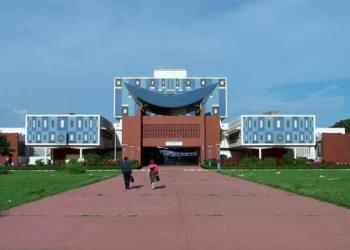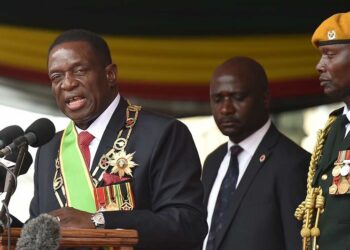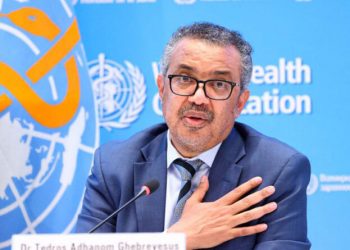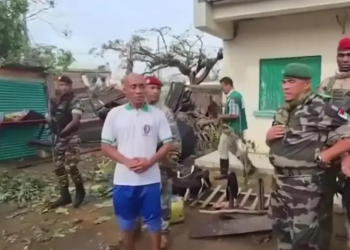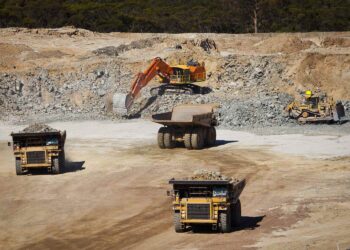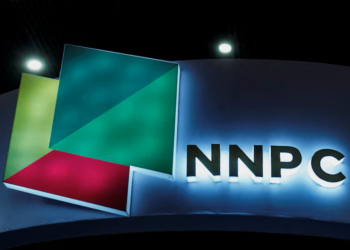Mining in Ghana has been ongoing for over 1000 years now. Historically, the mining industry has played a critical role in the socio-economic development of Ghana which is being reflected in its colonial name “Gold coast”. Gold has always been priced as a valuable commodity due to the importance people attach to it as an ornament and because of its value as a basis of currency. It is a widely accepted view that the local people in Ghana were engaged in alluvial mining even before the arrival of the Portuguese in the year 1471. During these times, rudimentary tools such as digging hoe and other basic tools were widely used for the exploitation of mineral deposits in the Gold Coast.
Modern-day Ghana, which gained its independence on March 6, 1957, consists primarily of the former Gold Coast. Currently, there are vast resources especially in six (6) mineralisation belts namely Kibi-Winneba, Ashanti, Sefwi-Bekwai, Bui, Bole-Nangodi and Wa-Lawra. There are also basins in between these belts and are known as Birim, Kumasi (Asankrangwa belt), Sunyani and Maluwe basins. Again, there are industrial and technology minerals spread across other parts of the country. As the backbone of the country’s economy, gold contributes roughly 90% to Ghana’s total mineral output. Ghana is also a major producer of diamonds; holds an estimated 900 million tons of bauxite reserves; and boasts large deposits of manganese, iron ore, copper, chromite, nickel and limestone.
Similarly, Ghana’s mineral potential is embedded in rocks such as the Tarkwa and Birimian series, which cover more than 40 percent of Ghana’s territory. For many years, small-scale mining has played an important role in the Ghanaian economy. Requiring little investment and minimal technical skills, small-scale gold mining is an attractive activity for a growing number of Ghanaians and is known to be practised in many communities, in common with other developing countries. Tarkwa mine is not only a leading gold mine in Ghana in terms of its production volume, but also one of the largest in Africa. Over the last decade, the production of gold has generally been rising. Between 2019 and 2020, AngloGold Ashanti’s Obuasi gold mine had ore reserves of nearly nine million ounces, and mineral resources reached over 29 million ounces. At the national level, more than eight metric tons of the precious metal were reported as official reserves. In the whole of Africa, the volume of gold produced each year puts the region in the spotlight, along with the Americas and Asia.
Apart from the mining activities, providing jobs and contributing to the economic growth of Ghana, it has its similar challenges which have a negative impact on the environment and the communities at large. Recently, the Executive Director of the Centre for Extractives and Development (an extractive and development policy research and advocacy organization), Samuel Osei Bekoe, revealed that over three million people are involved in illegal mining, commonly known as galamsey in Ghana, making it a much larger issue than many have viewed it. According to Joy News, these numbers are much higher than what literature has said, and it’s important we understand just how serious the issue is, he said.
However, illegal small-scale gold mining in Ghana has been linked with the destruction of the environment and illness. Martinez-Alier (2002) in his book on “The Environmentalism of the Poor: A Study of Ecological Conflicts and Valuation” underscored the impact of the destructive nature of gold mining on the environment. Gold mining is highly dependent on toxic chemicals such as mercury and cyanide which disrupt the ecological balance by way of damages biodiversity, landscape, habitats, and human health and water bodies. Water resources in particular are reddened hazardous due to contamination by heavy metals, acid mine drainages mercury and cyanide from gold mining (Martinez-Alier, 2002). This January, Ghana’s President John Dramani Mahama initiated the establishment of the Ghana Gold Board. Serving as part of his administration’s economic revitalization agenda, the initiative will play a key role in formalizing the country’s artisanal and small-scale mining (ASGM) sector while ensuring better regulation and providing support services for the mining industry.
Ghana’s Illegal Mining Crisis: The Struggle for Change
Faced with landlessness (lack of natural capital) and limited opportunities for employment in the formal sector because of their generally low levels of education (human capital), many have taken to galamsey as an alternative source of livelihood. Hence, ‘‘the rise in illegal mining activities can be attributed to various factors, including poverty, unemployment, inadequate enforcement of mining regulations, and the high profitability of gold and other mineral resources’’, according to the Ghana Chamber of Mines and other studies. To justify the previous argument, it is recalled that in 2023, 79 of some illegal miners invaded the mining company, for four days they were under the pit as they run short of food. A report said, they later gave themselves up for arrest.
Since this type of mining is illegal, it normally takes place under cover of darkness (at night) or at a hidden place such as forests, existing farms, river beds, valleys and remote locations. This is a job that needs no education, qualification or experience. It is patronized by all categories of persons who are physically strong; men, women, children, teenagers and even the aged engage in the winning of diamonds. Manual and traditional methods are practiced by the illegal miners. Simple tools or materials like pick-axes, shovels, barrels, head pans, sticks, sacks and nets are used. The miners in groups of three to five dig holes along the banks of rivers and streams, collect diamondiferous gravels (soil) with sacks, pour them into barrels and then use sticks and water to wash away the smooth sand from the stones. Perforated metal containers (normally referred to as ‘Top’) are used for the separation and the sands are collected for further treatment. Jigs (a wooden rectangular tray with net below) are used to pick the diamonds from concentrates in the jig.
A study on the impact of illegal mining on the Ghanaian youth indicated that because the work of illegal mining is difficult, they need to take in some drugs which will serve as catalysts or a stimulant. Thus, the youth tends to take in drugs like alcohol, marijuana, cocaine and other hard drugs to enable them to work hard for long periods. Eventually, some of them become addicted to the drugs and become social “misfits” thus increasing the rate of school dropouts in the district selected for the study. Immoral activities are also one of the effects of illegal mining among the youth in the district. As they get money from the illegal mining, they use it to influence the female to have sex with them, which normally leads to teenage pregnancy.
Today, an estimated 4,726 hectares of land – more than the size of European cities like Athens and Brussels – have been destroyed in seven of the country’s 16 regions, and 34 of its 288 forest reserves, data from Ghana Forestry Commission indicated. The galamsey operators also create pits that are not filled after use exposing themselves and others (including women and children) to harmful chemicals. Last year at a two-day conference on West Africa’s mining sector, held at the University of Ghana, a Professor of Sustainability at the Surrey Business School, University of Surrey, UK, Gavin Hilson, is of the view that Ghana is better equipped than most African countries to eliminate illegal mining. Media report said, he described galamsey as a “manufactured problem” that could be effectively addressed through the implementation of the right policies. Furthermore, he emphasized the need for a paradigm shift from viewing participants in galamsey as mere “criminals” to exploring innovative approaches to formalising the artisanal mining sector. Hilson noted that this approach could be adopted not only in Ghana but also across other West African countries.
Can Ghana Overcome Illegal Mining? Political Answers
In 1986, the mining sector underwent extensive reforms under the macroeconomic policy reforms of the Economic Recovery Programme (ERP) launched in 1983. These reforms were mainly targeted at sectors that could generate export earnings, such as mining. One of the overall objectives of the ERP was to create a framework of incentives to promote growth, encourage savings and investment, and strengthen the balance of payments. Small-scale gold mining in Ghana was regarded as an informal industrial activity before the passage of the Small-Scale Mining Act (PNDCL 218) in 1989. PNDCL 218 provided the legal framework for the operation of small-scale mines. The passage of the Act has facilitated the development of small-scale mining, particularly the involvement of youth, women, and children in many related activities, which are largely crude, unsupervised, and uncontrolled in many parts of the country. Small-scale gold mining has contributed over US$117 million to the Ghanaian economy since 1989.
The World Bank’s policy recommendations for the restructuring of key export sectors (especially mining) under the GSP include the need for a coordinated programme to rehabilitate State-owned mines, granting full managerial autonomy and gradually divesting these mines to private investors, along with financial assistance to reverse the decline in production. The mining sector, which is a potentially important contributor to foreign exchange aggregates, has been given priority attention to ensure increased production and productivity. Two types of policy measures can have a positive impact on the mining sector, namely macroeconomic policy reforms and sector-specific policy reforms. Observer says sector-specific policy reforms in the mining sector include changing the mining sector legislation to make the sector attractive. Study says, the main arguments are that elected officials act rationally by exhibiting a dominant strategy of non-cooperation, thereby failing to broker viable policy options to reduce ‘illegal’ mining. ‘Illegal’ miners act strategically by refusing to register because there are low incentives for doing so. Further, by exercising intelligence and creativity, miners adapt to government regulation by partnering with foreign (e.g., Chinese) nationals and threatening to vote against elected officials for reneging on their promise to regularize the practice.
In 2024, before his inauguration in an exclusive interview with VOA, Ghana’s President John Mahama said the following about the mining issues in the country: ‘‘ One of the first things is to pass the law to ban mining in forest reserves. When this government came to pass, an airline that allowed forest entry was possessed. And since the last eight years, seven forest reserves have seen incursions into 37 forest reserves. Some have been almost destroyed. He also said, ‘‘ The first thing to do is stop mining in forest reserves because that’s where all the rivers get their catchment area. That’s where the water comes into the rivers. The next thing is to clean up the rivers and stop mining and pouring the effluent into the rivers. And so, we’re good to work with the Minerals Commission and the Environmental Protection Agency (EPA) to see how we implement the law. ‘‘ But let me explain. People need to distinguish between small-scale mining and illegal mining. Small-scale mining is legal. There are ways of doing it without destroying the environment in Canada, Australia, and the United States. Technology exists. So why don’t we reduce that technology and train our people to do mining in a way that is safe for the environment? We’re willing to consider those things.’’
What is more?
Like the large-scale and registered small-scale mining operations, galamsey remains a key economic activity in terms of employment creation, income and revenue generation. Also, to pave a way for brighter future, Ghana must embrace sustainable solutions that prioritise the protection of its natural resources, communities and economic stability.
In a study titled, ‘‘The Ban on Illegal Mining in Ghana: Environmental and Socio-Economic Effect on Local Communities’’, by Stephen Twumasi Annan of the Department of Integrated Science Education, Faculty of Science Education, University of Education, Winneba, Ghana suggested alternative livelihood and income-generating projects such as beekeeping, mushroom culture, grasscutter rearing, and Agroforestry technologies including the growth of economic fruit trees and species such as teak plantations should be encouraged among the youth and the entire affected communities to address their livelihood situation. However, in his own argument, Bekoe elaborated on the difficulty in persuading young people to abandon illegal mining, especially when alternative livelihoods don’t offer the same financial rewards. “If these alternative livelihoods don’t provide the same income as illegal mining, it will be hard to convince the youth to stop,” he explained.
Annan added that, the government should also come out with comprehensive guidelines for safe mining and review the licensing regime and proper monitoring regime. ” With this view, the government intends to use drone technology and tracking monitoring devices to monitor illegal activities, which I think is a step in the right direction.” Other experts propose that the devolution of small-scale mining decisions to municipal and district assemblies working with traditional authorities. This would include reforming the licensing system so that the cost of formalising operations aligned with the complex socio-economic realities of most miners. Moreover, some argue that command-and-control strategies or criminalisation policies don’t work. Policies must address the reasons people engage in the behaviour in the first place.
Besides, solutions could potentially lie with traditional authorities. Land in Ghana is held customarily by traditional leaders like chiefs and family heads. Acquiring land for mining requires the informal granting of permission for a small fee with the relevant traditional owner of the land. In addition, they propose that customary representatives must also be regular actors in state institutions in charge of land and natural resources. While the increase in teenage pregnancy, high student turnover rate, high levels of truancy and disrespect among the youth are the most common impact of illegal mining among the youth in Ghana. There is therefore the need for chiefs and people in Ghana to reexamine the activities of miners and institute appropriate measures in order to preserve cultural values and ensure that development now and in the future is geared towards long-standing benefits to the society in general.
















































